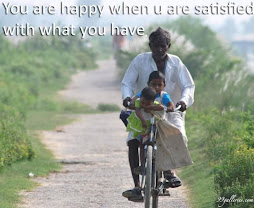
India is a land of cultural as well religious diversity, known for its festivals. Being a multicultural and multi-religious society, India celebrates holidays and festivals of various religions. Therefore, every Festival in India is in itself an epitome of cultural and religious amalgamation. The festival season is an excellent time to get a glimpse of Indian life and culture. During the festival season, many types of trade shows, cultural exhibitions, music concerts, dance and drama performances, cultural events, business exhibitions are organized.
India has three national holidays: Independence Day (August 15), Republic Day (January 26) and Gandhi Jayanti (October 2). States and regions have local festivals depending on prevalent religious and linguistic demographics. Other popular religious festivals include the Hindu festivals of Diwali, Ganesh Chaturthi, Holi, Dussehra and the Islamic festivals of Eid ul-Fitr, Eid al-Adha, Mawlid an-Nabī which are celebrated throughout the country. Sikh festivals such as Guru Nanak Jayanti, Christian festivals like Christmas and Easter, and Jain festivals like Mahavir Jayanti and Paryushan are celebrated in certain areas where these religions have a significant following.
In the era of globalization, the whole world has become one common place, with people of one country openly welcoming the cultures of other nations. As a result, no festival can be considered as unique to one country or religion. In such a scenario, people are no longer biased towards those from other ethnic backgrounds and towards foreign festivals. Just as Christmas has become a universal festival, Valentine’s Day is also celebrated with much pomp in India.

In India, October and November are the months when festival fever runs high and everything else takes a backseat. As September draws to a close and October begins, festivals fill the life of one and all with colours and enthusiasm. The festivities have already begun with the celebration of Janamashtmi and Ganesh Chaturthi. The other festivals that will follow soon in the two months include Eid-ul-Fitr, Duesshra, Marwar festival, Karva Chauth, Deepawali, and Bhai Duj.
Even during the festival season, many kind of economic activities are undertaken to help the market boom. Meanwhile, so many Government Holidays in keeping with the idea of peaceful co-existence of all religions is hampering economic activities to a significant extent.
A festive mood and a totally celebratory atmosphere flourish in the environment. Celebration of festivals is a way of paying respect and reverence to the Almighty for the achievement of wealth, glory, knowledge and fame.

All festivals represent a time when we come to know more about our own culture and appreciate it. They are a welcome break from the day to day tensions of the life and fill our hearts with happiness. They are to be enjoyed completely. Although each festival has its origin in mythology, it is celebrated with equal enthusiasm without any differentiation in class, creed, or economic status.




No comments:
Post a Comment